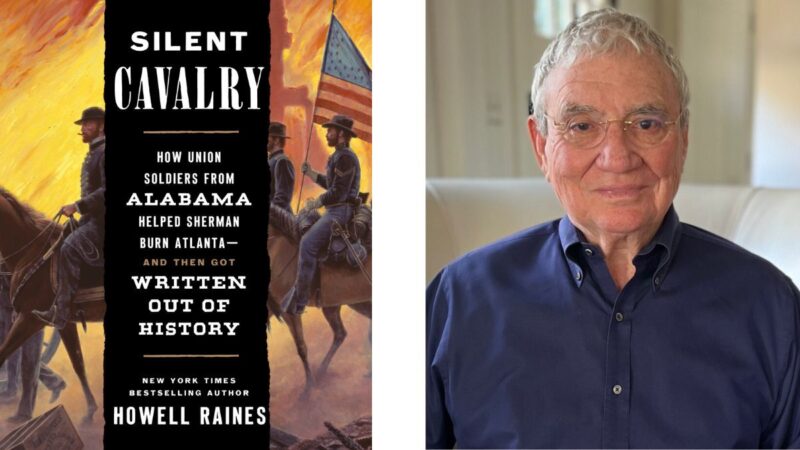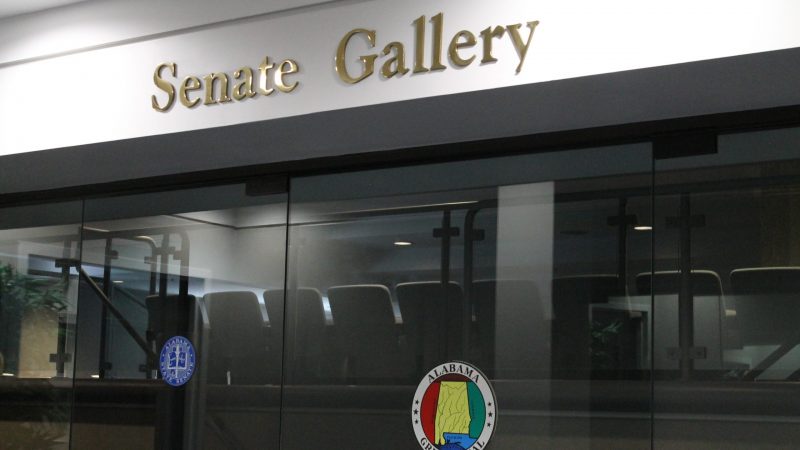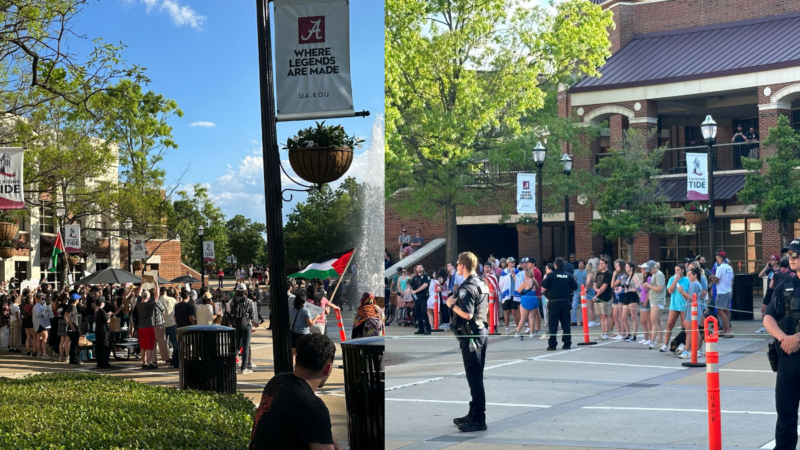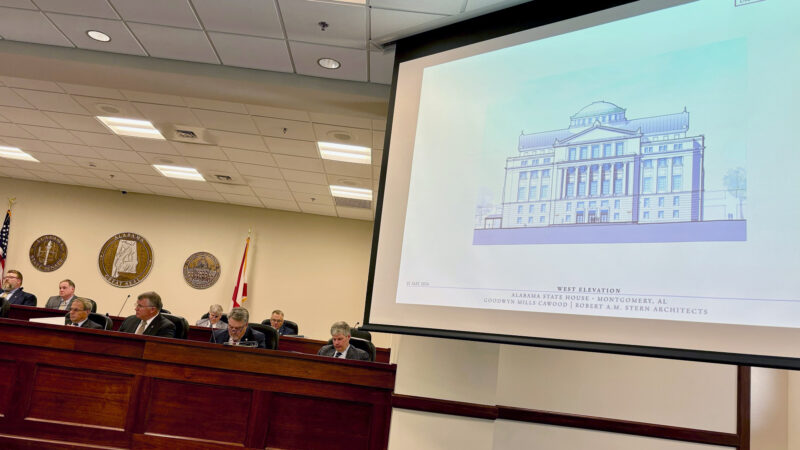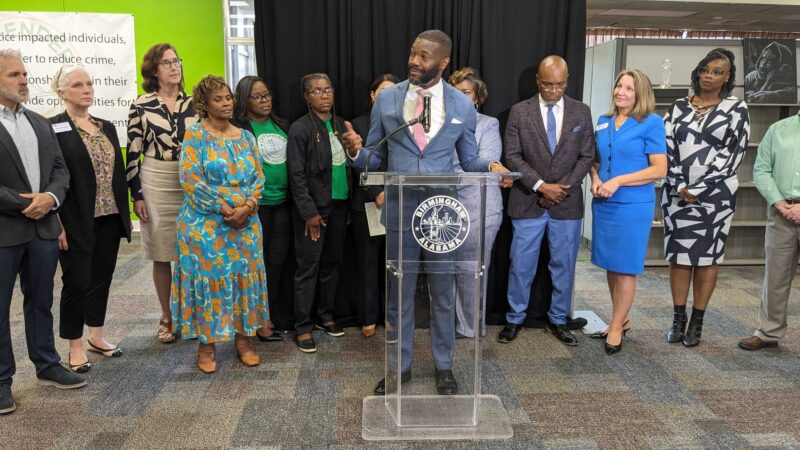What the Lost Cause narrative masks about Alabama history
Silent Cavalry: How Union Soldiers from Alabama Helped Sherman Burn Atlanta--and Then Got Written Out of History, By Howell Raines, former executive editor of the New York Times and Alabama native
Many Alabama officials have for generations promoted the Lost Cause narrative of the Antebellum South – that residents of the state were nearly unanimous in their support for secession prior to the Civil War. The new book Silent Cavalry shows otherwise. WBHM’s Richard Banks spoke to the book’s author, Howell Raines, the former executive editor of the New York Times and an Alabama native.
Howell Raines, tell us about Silent Cavalry. It’s been a nearly lifelong passion project for you.
Well, this is a book that took me six decades to research. It tells the story, long-buried story of Alabama unionists, that is to say, Alabama residents from the Hill country of Alabama who refused to fight for the Confederacy … It’s one of the things that has been written out of Alabama history, that there were 2,050 white Alabamians … who volunteered for the Union Army and were formed into a very efficient fighting and spying brigade, a regiment called the First Alabama Cavalry, USA.
In the book you make the case that the First Alabama played a significant role in the war. That the group was not only adept at fighting, but at spying, since they could easily move across enemy lines. They became well known among Union leaders, right?
This was a group of Alabamians who were known to Lincoln, who were known to Grant, who were known to Sherman, were written up in The New York Times. And yet, in the years immediately following the war, the Confederate-friendly historians and officials of Alabama were so angry at them for fighting for the other side, they essentially disappeared them from our state history.
Not only was this group of Unionists from Alabama written out of the state’s history, but you also say in the book that there was significant opposition to secession here and state officials have tried over the decades, successfully, to keep that point out of history books.
At least half of the white citizens of Alabama in 1860 opposed the Confederacy, opposed secession. So that’s why the Union movement in Alabama was so much stronger than our history books have been allowed to tell us. At the critical test vote at the 1860 secession convention in Alabama, the pro-Confederate secessionists carried it by only an eight-vote margin, in a legislative body of 100 people. That means that almost half of the Alabama counties voted against pro-secession delegates.
Why did so many Alabamians oppose succession?
The upshot of this for Alabama is only one out of three families in Alabama, at the most, ever owned a single slave. The area from Jasper to Huntsville, in the Alabama Hills, were small farmers who owned no slaves because they grew very little cotton. They were followers of Andrew Jackson, who said the Union must be preserved. It’s too important to break up over the slavery issue.
So, was it just a practical concern about secession and the war. In other words, did these Unionists, mainly from North Alabama, not really care about the abolition of slavery?
It’s true there was an economic and practical motivation in the politics of that, but it cheapens the anti-slavery principles of the North Alabama Unionists to say it was solely about their economic self-interest. In the Tennessee Valley, prior to the Civil War, there were four or five abolitionist societies. There were philosophical abolitionists in Alabama before the war.
So why this book, now?
What I would hope for this book is it’s a restoration of the heritage of Alabamians who did not participate in the economy of slave holding, and who acknowledged that the story of Alabama is not just the plantation story. It’s the story of the white mountaineers. It’s the story of the Black slaves. Seven [thousand] to 10,000 black slaves from Alabama enlisted in the Union Army. Interestingly, of the official members of the First Alabama Cavalry, 16 were former slaves. That means, at that time, it was one of the few integrated units in the Union Army. And also, I hope the book will make the point that … if history is twisted, edited dishonestly, then we don’t know who we are as a people. We can’t know, our historical identity.
Tell us about your conversation with Ken Burns and his team, about why they didn’t include the First Alabama Cavalry in their Civil War documentary. And if you don’t mind, explain the role that you believe historian Shelby Foote had in that.
It’s one of my favorite stories. Jon Meacham – the well known historian who people see on MSNBC and who’s an important figure at Vanderbilt now – I asked him, did Shelby Foote hijack Ken Burns film? And he said, oh, absolutely. He was television gold, and it couldn’t be resisted.
But Ken Burns’ nine-part series on the Civil War is the most powerful teaching instrument in the history of Civil War historiography. But why did it not mention the First Alabama? I just called Ken Burns up, and, I knew his brother Rick Burns, his co-writer … and so I said, why did y’all leave it out? And he said, ‘Well, we didn’t know anything about it.’ And Ric Burns and Geoffrey Ward, [both] co-writers, told me Shelby Foote never mentioned the First Alabama Cavalry.
Did he, Shelby Foote, not mention the First Alabama in his history trilogy, Civil War: A Narrative?
A massive, massive, work which I admire. Some of its scenes I think are the best ever written of specific incidents. But not a word [about the First Alabama]. And he really doesn’t delve on the role of unionism in the South as a factor in the war, even though he acknowledges that late in the war, the lack of Confederate nationalism led to the southern defeat. He simply left it out.
In fairness to Shelby Foote, he said historians will be able to find a lot of holes in my work, because I wanted to put together a narrative that I thought caught the thrust of the history. But this is a big hole. There’s an old saying about a Southerner who can talk a dog off a meat wagon, and he [Foote] had that gift.
Gambling bill in doubt with three days left in the legislative session
Alabama lawmakers are coming down to the finish line for this year’s legislative session. Many bills await passage, but perhaps the biggest one up in the air is a lottery and gambling bill.
Pro-Palestinian demonstration draws counter-protest at University of Alabama
Students gathered demanding the school call for a permanent and immediate ceasefire and to push the school to sever ties with defense contractor Lockheed Martin.
A new Statehouse and related projects will cost about $400 million
The Alabama Legislative Council, a 20-member panel comprised of legislative leaders and their appointees, approved the construction of the new Statehouse last year. The panel was given an update on the project on Wednesday.
New pilot program will offer housing, resources to people leaving prison
The Birmingham Reentry Alliance will provide wrap around services to dozens of men and women adjusting to life after prison.
Alabama committee advances ban on LGBTQ+ pride flags in classrooms
The Senate Education Policy Committee voted 5-2 for the House-passed bill, putting the proposal in line for a possible final passage in the last four days of the legislative session.
A New Orleans garden paid hundreds of dollars in fees for a sewer that doesn’t exist
Galvez Garden owner Lissie Stewart has been fighting the New Orleans Sewerage and Water Board over inaccurate billing for years.
